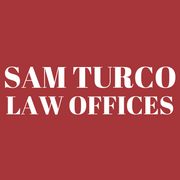A Nebraska Attorney Explains the Basics of Chapter 13 Bankruptcy

For those considering filing for bankruptcy, it can pay to know the difference between a Chapter 7 and a Chapter 13 filing, the two types of personal bankruptcy. Depending on your personal financial situation, either option can be the right choice to help someone struggling with debt regain control of their personal finances.
Sam Turco Law Offices, with locations in both Omaha and Lincoln, has been helping Nebraska residents navigate the complexities of bankruptcy law since 1992. Below, their attorneys explain some of the basic features of a Chapter 13 bankruptcy case.
What Is Chapter 13 Bankruptcy?
“Wage Earner’s Plan”
Chapter 13 bankruptcy, s ometimes called a wage earner’s plan, is best suited for those with the means to continue making payments toward the debts they currently owe. Unlike Chapter 7 bankruptcy, under Chapter 13 bankruptcy, an individual is given the opportunity to meet most current debt obligations under a restructured payment plan over the course of three to five years.
ometimes called a wage earner’s plan, is best suited for those with the means to continue making payments toward the debts they currently owe. Unlike Chapter 7 bankruptcy, under Chapter 13 bankruptcy, an individual is given the opportunity to meet most current debt obligations under a restructured payment plan over the course of three to five years.
Eligibility
To be eligible for Chapter 13 bankruptcy, a claimant must have debts valued below certain thresholds prescribed by bankruptcy law, with separate thresholds for secured debts—such as a car or home loan—and unsecured debts, like credit cards. Claimants must be up-to-date on their taxes, and because a Chapter 13 bankruptcy requires continued regular payments, anyone filing for Chapter 13 bankruptcy must demonstrate an ability to meet the requirements of a payment plan.
Filing Chapter 13 Bankruptcy
After completing mandatory credit counseling, anyone who still wishes to file for Chapter 13 bankruptcy should begin preparing a repayment plan, preferably with the aid of an experienced bankruptcy attorney. Certain “priority” debts, such as child support, taxes, or wages owed to employees, must always be paid in full. The plan must also include provisions both for maintaining regular payments on secured debts like mortgages and for repaying any arrearages.
During the course of the payment plan, the claimant must also contribute additional income toward the payment of unsecured debts. After the completion of the bankruptcy payment plan, certain eligible debts might be discharged. Because the requirements are complex and the nuances of each bankruptcy case are unique, a skilled attorney will be able to navigate a client toward the best possible resolution in each case.
Whether considering a Chapter 7 or Chapter 13 bankruptcy case, Nebraska residents who find themselves in debt trouble should turn to Sam Turco Law Offices for the best legal advice on issues related to bankruptcy. Visit their website to find out more about the practice, or call (402) 620-6079 to schedule a free consultation.
About the Business
Have a question? Ask the experts!
Send your question

